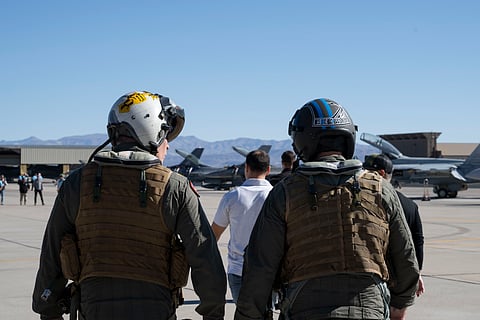

The United States military conducted a nighttime strike on an alleged drug trafficking vessel in the Caribbean Sea, killing six individuals identified as members of the Tren de Aragua criminal organization, Defense Secretary Pete Hegseth announced on Friday.
This operation marks the tenth such action by the Trump administration since early September, contributing to a total of at least 43 deaths in efforts aimed at disrupting narcotics smuggling routes.
Hegseth shared a brief video on X depicting the vessel in the crosshairs before it erupted in flames and smoke, confirming no harm to U.S. forces.
The strike occurred in international waters along a known trafficking corridor, based on intelligence indicating the boat's involvement in illicit narcotics transport.
President Donald Trump initiated this campaign with the first announced strike on September 3, releasing footage of the attack to underscore the administration's commitment to curbing drug flows into the United States.
Subsequent operations have expanded to include strikes in the Pacific Ocean on October 21 and 22, with enhanced U.S. military deployments in the region, encompassing guided-missile destroyers, F-35 fighter jets, a nuclear submarine, and thousands of troops.
Trump has asserted his legal authority to order these actions, having designated Tren de Aragua as a terrorist organization, while stating that land-based operations might necessitate congressional involvement.
Secretary of State Marco Rubio emphasized the rationale, noting that halting drug shipments would end the strikes.
The strikes have sparked bipartisan criticism in Congress and among legal experts regarding their adherence to international law and presidential powers.
Twenty-five Democratic senators urged the White House on September 10 to provide evidence justifying an earlier strike, alleging insufficient proof of threats to U.S. security.
Republican Senator Rand Paul of Kentucky has called for congressional approval, arguing against unilateral executive action.
Civil liberties groups and several South American nations have condemned the operations, with reports indicating the CIA's pivotal role in intelligence gathering, much of which remains classified.
Venezuelan President Nicolás Maduro, a vocal adversary of Trump, denies accusations of leading a drug-trafficking network and claims the strikes aim to destabilize his government.
The U.S. recently doubled its bounty for information leading to Maduro's arrest to $50 million, linking him to criminal syndicates.
In one prior incident, two alleged traffickers survived a strike and were repatriated to Colombia and Ecuador after rescue by a U.S. Navy vessel.